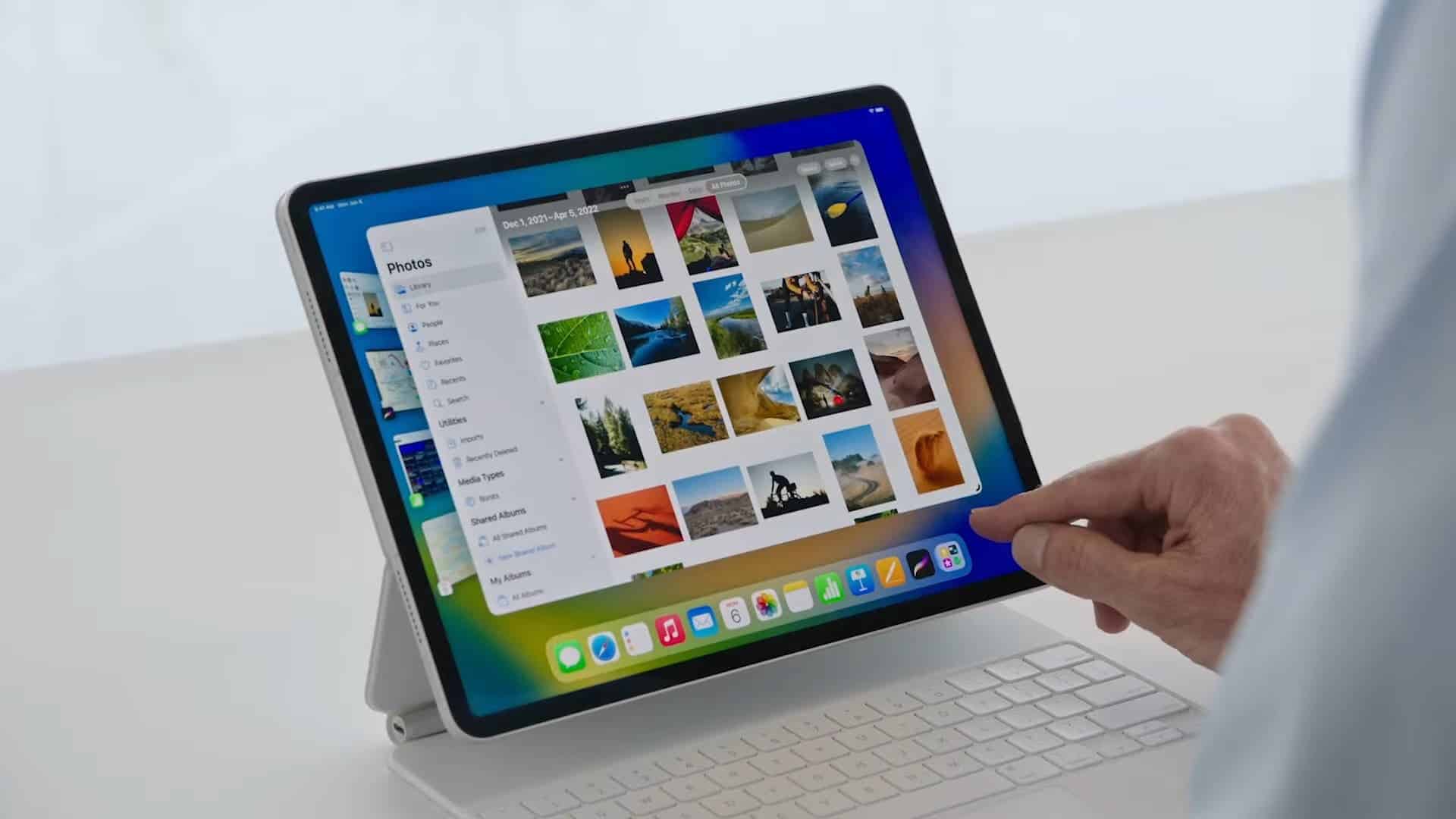According to a recent report, Apple is working on a special version of the iPadOS 17 system. The report claims that this special system is designed for the larger iPad that is yet to hit the market. The first large iPad will be 14.1 inches and will officially hit the road next year. Twitter user @analyst941 broke the news that the special edition iPadOS 17 is designed for the larger iPad Pro/Ultra/Studio. He also claims that it will be fine-tuned so that the 14.1-inch model can run two 6K displays simultaneously. It will do this through the Thunderbolt 4 interface and its refresh rate will be up to 60Hz. The model will come with the M3 Pro chip.

The 14.1-inch iPad will be the largest iPad model yet, surpassing the current 12.9-inch iPad Pro. The leak suggests that Apple may adopt a new name for the upcoming larger iPad to separate it from existing products, such as “iPad Ultra” or “iPad Studio,”. Although this specific claim seems to be based on speculation rather than hard evidence.
Apple’s interest in larger iPads has been discussed several times before. Reliable display analyst Ross Young reported at one point that the 14.1-inch iPad Pro would launch in the first quarter of 2023 with a mini-LED display. However, in December, Ross Yang reversed his forecast and said that Apple no longer plans to launch a new 14.1-inch model. His report now reads that Apple will either cancel the device or delay it for a long time.

A brief history of Apple’s large display iPads
Apple has always been known for its innovative and forward-thinking approach to technology. One of the areas where the company has consistently pushed the envelope is with its line of iPads, particularly those with large displays. In this essay, we’ll take a closer look at Apple’s history of large display iPads and how these devices have evolved over time.
The first iPad was released in 2010 and featured a 9.7-inch display, which was considered large for a tablet at the time. The device was well-received by consumers and quickly became a best-seller, with millions of units sold in the first few months of its release.
iPad Pro
However, it wasn’t until the release of the iPad Pro in 2015 that Apple really began to explore the potential of large display iPads. The original iPad Pro featured a 12.9-inch display, which was much larger than any previous iPad model. The device was marketed as a productivity machine, with features like split-screen multitasking and the ability to run multiple apps simultaneously.
The larger display also made the iPad Pro ideal for creative professionals, such as graphic designers and artists. Apple released a new accessory for the iPad Pro, called the Apple Pencil. The Pencil allows users to draw and sketch directly on the screen with precision.
The iPad Pro was a hit with many good reviews from users and tech journalists. Many praised the device for its powerful output and large display. This made it ideal for tasks like video editing and gaming.
Gizchina News of the week

iPad Pro 2017
In 2017, Apple released a new version of the iPad Pro with a slightly smaller 10.5-inch display. However, the company still retained the 12.9-inch model. The new iPad Pro models also featured improved chips, better cameras, and support for the Apple Pencil.
iPad Pro 2018
The 2018 iPad Pro saw a huge redesign, with a thinner bezel and rounded corners, similar to the iPhone X. The 12.9-inch model was also slightly smaller, thanks to a reduction in bezel size.
The redesign was met with mixed reviews, with some praising the new design as sleek and modern. However, others criticized it for being too similar to the iPhone. However, the new iPad Pro models still sold well. It continued to be popular among creative professionals and power users.
iPad Air 2020
In 2020, Apple revived the iPad Air brand, which had been dormant since 2018. The new iPad Air featured a 10.9-inch Liquid Retina display, which was slightly larger than the previous model’s 10.5-inch display.

The design of the new iPad Air was similar to the iPad Pro, with slimmer bezels and support for the Apple Pencil 2. However, the device was less powerful than the iPad Pro, with a less advanced processor and fewer features. Despite this, the new iPad Air was still popular with users, thanks to its lower price point and decent display.
iPad Pro 2021
In 2021, Apple released the most recent iPad Pro models, which feature 11-inch and 12.9-inch Liquid Retina XDR displays. These displays offer improved brightness and contrast, making them ideal for tasks like photo and video editing.
The new models also feature the powerful M1 chip, which is similar to the chips used in Apple’s Mac PCs. This makes the new iPad Pro models even more powerful and capable than previous models.
Pros of Apple large display iPads
One of the main pros of a large display iPad is the ability to use it as a laptop option. With the addition of accessories like the Smart Keyboard and the Apple Pencil, users can perform tasks like writing, drawing, and editing with ease. This has made the iPad an attractive option. This is mostly so for people who need to work on the go or who prefer the versatility of a tablet over a regular laptop.
Another advantage of a large display iPad is the ability to consume media in a more immersive way. Whether it’s watching a movie or playing a game, a larger screen can make the experience more enjoyable and engaging.
The popularity of large display iPads has also spurred innovation in the tablet market as a whole. Rivals like Samsung and Microsoft have released their own large display tablets. These tablets offer similar features and capabilities to the iPad Pro.
Post Disclaimer
The information provided in our posts or blogs are for educational and informative purposes only. We do not guarantee the accuracy, completeness or suitability of the information. We do not provide financial or investment advice. Readers should always seek professional advice before making any financial or investment decisions based on the information provided in our content. We will not be held responsible for any losses, damages or consequences that may arise from relying on the information provided in our content.



